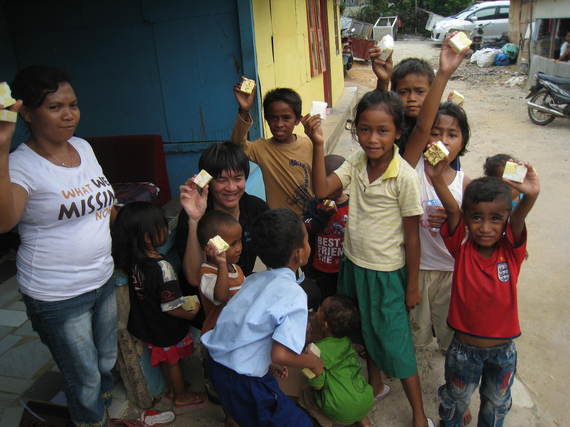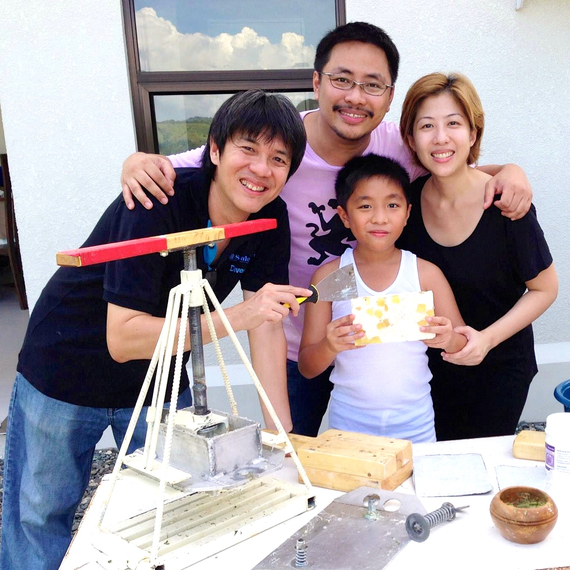Where some people see trash, Stefan Phang sees opportunity.
As the Global Corporate Social Responsibility Director of Sealed Air, Phang has invented a "soap-factory-in-a-box" concept that transforms discarded bars of hotel soap into brand new ones for some of the world's poorest citizens.
He calls this program 'Soap For Hope'.
Soap for Hope reprocesses used and discarded hotel guest soap and distributes them to the underprivileged children who live in slum areas of some of Asia's major cities.
The program's objective is three-fold: to save lives -- enabling hygiene through providing access to soap to communities who need soap but have no access, to provide a means of livelihood to the local community through recycling and reprocessing soap, and to help hotels reduce waste by turning used soap into something useful again.
A typical 400-room hotel generates 3.5 metric tons of solid soap waste each year. Handwashing with soap is among the most effective and inexpensive ways to prevent diarrheal and respiratory diseases in the Asia, the Middle East and Africa, where 7 million children per year die due to diseases that could have been prevented with proper handwashing.
Phang's simple cold process method is what sets it apart from other larger soap recycling initiatives. The entire process can be done locally, without running water or electricity, making it ideal for locations in developing countries where power cuts are inevitable.
"Our process enables start-up and logistics costs to be kept very low. The local community can operate the soap making process in their backyard as opposed to the typical, industrial soap reprocessing plant." The entire process can be done start to finish in seven minutes flat.
One of the key aspects of this program is having the involvement of the local community. All Soap for Hope projects are run directly by local nonprofits and employ underprivileged community members to do the work, giving livelihood opportunities to those who wouldn't otherwise have the chance.
"Be engaging the local people in a project that benefits their own community, [we] give them a sense of true pride and ownership."
He notes that each country produces their soap slightly differently, adding scented oils, coffee grounds, lemongrass extracts, dried lavender buds and other local additions to add a pleasing aroma and look to the new bars.
Phang's Soap for Hope program was initially piloted in Cambodia 18 months ago with immense success. Today it is already thriving in 33 cities across 18 countries, including South Africa, Thailand, Indonesia, Kenya and most recently Myanmar.
The results speak for themselves: from October 2013 until now, over 500,000 bars of soap have been produced, with 41,600 people receiving soap deliveries, all while 240 tons of solid soap was diverted from landfills.

